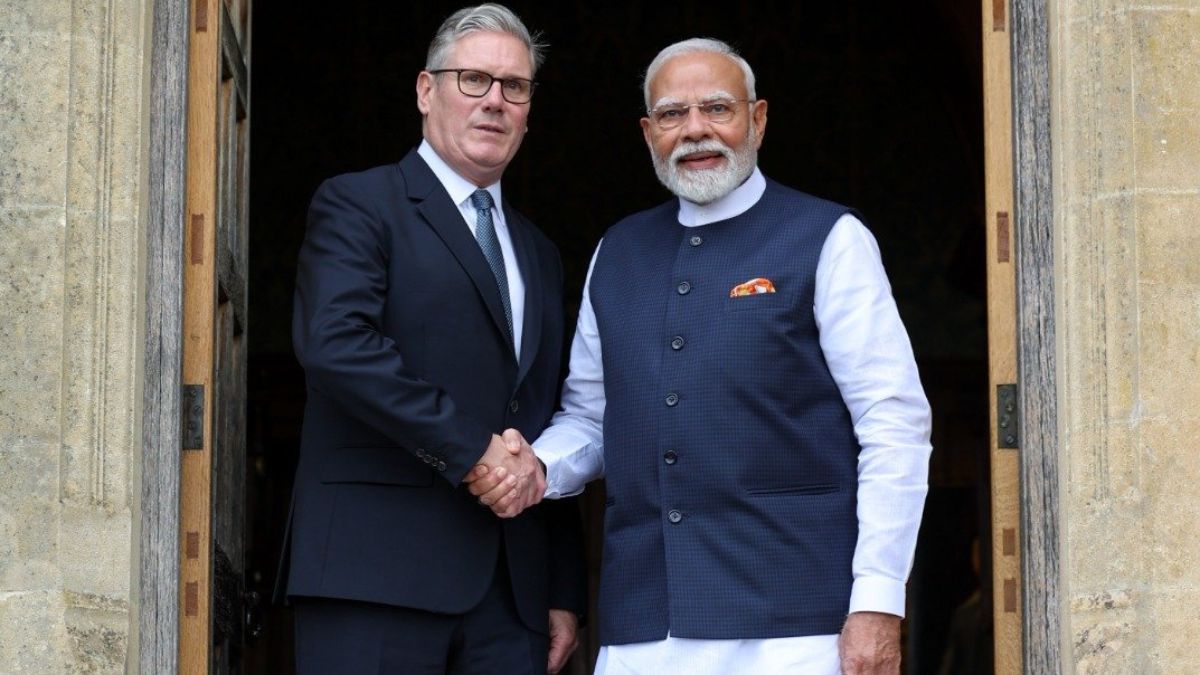Under the India-UK Free Trade Agreement (FTA) signed on Thursday , up to 95 per cent of agricultural products and processed foods have been added to the zero-duty category whereas certain sectors sensitive to India have been excluded from the category.
Overall, the trade deal secures unprecedented duty-free access for 99 per cent of India’s exports to the United Kingdom, covering nearly the entire trade basket, the Union commerce ministry said in a statement.
Here are 10 key features of the India-UK trade deal — from duty-free access to goods to easier mobility of professionals.
1. Farmers to get preferential access to UK markets
Indian farmers will get preferential access to the UK’s $35 billion agricultural market.
Overall, more than 95 per cent of agricultural products and processed food products will attract zero duties, such as fruits, vegetables, cereals, pickles, spice mixes, fruit pulps, and ready-to-eat meals and processed foods. This will boost India’s export and enhancing income of domestic farmers.
2. India protects sensitive sectors
Despite the duty-free trade of such products, India has secured the exclusion of sensitive sectors like dairy, vegetables, apples, cooking oils, and oats, to protect the interest of Indian farmers and traders by preventing the influx of cheaper imports.
3. Big catch for Indian fishermen
The India-UK trade deal has opened the $5.4 billion UK market for marine exports as the UK import duty on marine products will fall to 0 from up to 20 per cent.
4. Boost for job creation
The India-UK trade deal has given a competitive edge to Indian labour-intensive industries in the UK, giving them more employment-generation opportunities.
“CETA [Comprehensive Economic and Trade Agreement] secures unprecedented duty-free access for 99 per cent of India’s exports to the UK, covering nearly the entire trade basket. This is expected to open new opportunities for labour-intensive industries such as textiles, marine products, leather, footwear, sports goods, toys, and gems and jewellery, alongside fast-growing sectors like engineering goods, auto components, and organic chemicals,” the Union commerce ministry said.
5. Zero duty on major sectors
Duties have been brought down to 0 per cent on several major Indian sectors, such as textiles (down from 12 per cent), base metals (from 10 per cent), and chemicals (from 8 per cent).
6. Gains for rural India
As most of the processed food products have been brought under a zero-duty regime from 70 per cent duties, rural Indian producers and exporters of that produce are set to get a boost.
7. Double Contribution Convention (DCC) to exempt workers and employers from social security contribution for three years. This will benefit 75,000 Indian workers in the UK.
Impact Shorts
More Shorts8. Indian professionals will get better mobility access to the UK.
9. Up to 1,800 Indian chefs, yoga instructors, and classical musicians can move temporarily to UK to provide services.
10. More opportunities for India’s services sector
The India-UK trade deal will provide better opportunities to India’s services sector.
“The agreement provides greater market access in IT and IT-enabled services, financial and legal services, professional and educational services, and digital trade. Indian professionals, including those deployed by companies to work in UK across all services sectors, professionals deployed on contracts such as architects, engineers, chefs, yoga instructors, and musicians, will benefit from simplified visa procedures and liberalised entry categories, making it easier for talent to work in the UK,” the Union commerce ministry said.


)

)
)
)
)
)
)
)
)



